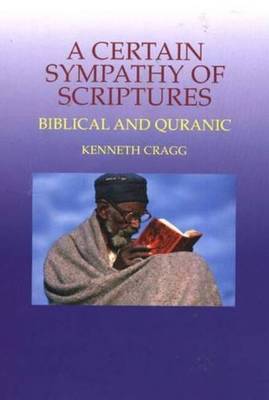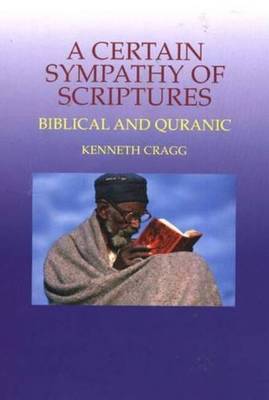
Bedankt voor het vertrouwen het afgelopen jaar! Om jou te bedanken bieden we GRATIS verzending (in België) aan op alles gedurende de hele maand januari.
- Afhalen na 1 uur in een winkel met voorraad
- Gratis thuislevering in België vanaf € 30
- Ruim aanbod met 7 miljoen producten
Bedankt voor het vertrouwen het afgelopen jaar! Om jou te bedanken bieden we GRATIS verzending (in België) aan op alles gedurende de hele maand januari.
- Afhalen na 1 uur in een winkel met voorraad
- Gratis thuislevering in België vanaf € 30
- Ruim aanbod met 7 miljoen producten
Zoeken
€ 27,95
+ 55 punten
Omschrijving
Can there be genuine sympathy' between the Bible and the Qur'an? Their peoples' have been at odds so long, disputing their texts and discounting their credentials. Scholars from both faiths have contrived intriguing comparison of narratives about Abraham, Joseph or Moses but with little relevance to the contemporary scene and its demand for religious converse and sanity. "A Certain Sympathy of Scriptures" attempts something more central to the essential interest' of both Scriptures, more cogent in this 21st century (the 15th Islam). It is a concern with three shared dimension: The divine will for this cosmos of created order; its entrustment into human hands as creaturely heirs to its order and responsive sciences'; and the discipline of their tenancy and privilege by messengers' and prophethoods disclosing the intention of divine Lordship in the fact of human vocation. These three dimensions are the supreme theme of both Scriptures. This caliphate' of humankind belongs in a now global situation as the abiding reality of Semitic humanism. We are not on our own', but trustees in a sacramental order, neither playthings nor puppets of a bland omnipotence but associates' of the God who willed to create and cared to inform, inspire and invite as such to be. Deep disparities remain between our Scriptures. They have to do with what goes beyond our education', as more than prophethood. They enlarge into all that Jesus fulfilled in Christhood. They involve a truer measure of human perversity and, in turn, a larger expectation concerning the greatness' of God. Yet what divides need not alienate. The mutual ground -- this certain sympathy -- gives hope of wiser recognition of the divine stake in our humanity.
Specificaties
Betrokkenen
- Auteur(s):
- Uitgeverij:
Inhoud
- Aantal bladzijden:
- 144
- Taal:
- Engels
Eigenschappen
- Productcode (EAN):
- 9781845190125
- Verschijningsdatum:
- 1/05/2004
- Uitvoering:
- Paperback
- Formaat:
- Trade paperback (VS)
- Afmetingen:
- 150 mm x 226 mm
- Gewicht:
- 235 g

Alleen bij Standaard Boekhandel
+ 55 punten op je klantenkaart van Standaard Boekhandel
Beoordelingen
We publiceren alleen reviews die voldoen aan de voorwaarden voor reviews. Bekijk onze voorwaarden voor reviews.









